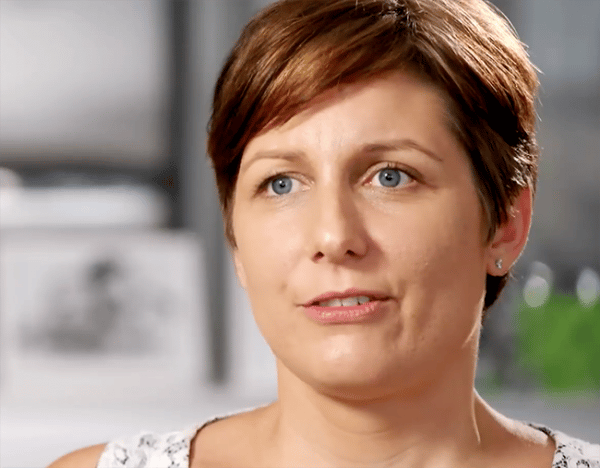From the outside, embryos leftover from IVF might resemble a simple bundle of cells. But, for a couple who’s just gone through the torment that is trying to fall pregnant when it doesn’t come naturally, these embryos likely represent something more.
The frozen embryos – also referred to as ‘snowflakes’ – are the product of IVF. They are not just eggs or sperm. Genetically, both the paternal and maternal sides are accounted for and the embryos share the same DNA as any children conceived by the couple who’s completed IVF.
So what should be done with these embryos? Should they be destroyed? Or donated?
One woman, Natalie Parker, made the decision to donate her embryos wearing “rose-coloured glasses”.
The mother told Channel Nine’s 60 Minutes how she’d read a case study about a couple who donated their embryos and stayed in contact with the recipient family. Their children, genetically brothers and sisters, became friends and the parents shared a bond unlike many others.
“We kind of walked in with rose-coloured glasses saying, ‘Ah this will all be great,'” she told Nine reporter Allison Langdon. “Because we had heard the good stories and how great it could be.”
Listen: Megan Malkiewicz shares her embryo donation story on our pregnancy podcast, Hello Bump. Post continues after audio.
But there were no playdates or friendships or long discussions between parents about the ways of the world and how they came to be connected.
Instead, the recipients of Parker’s embryos told the IVF clinic they’d miscarried and they disappeared. However, when Parker followed up and found the mother on social media, she saw the couple had a baby boy of remarkably similar appearance to her son.

Top Comments
Embryo donation seems akin to adoption, potentially leaving the child with a lot of confusion about their origins and a childhood of feeling like they don't really belong with their family. Genetics determines such a large proportion of who we are - it is not to be underestimated.
What if that embryo was donated not to strangers, but to someone you knew? Another couple?
This may sound harsh but once you give away or donate anything, you no longer have a right to have any say in what happens
From blood, organs, clothes, money and yes embryos too
Its all well and good to want that happy all mix extended family so to speak but its not a requirement
I tend to agree. My first thought was that maybe the family she donated to didn't want the ongoing contact, but didn't know how to tell her. What they did was not exactly a great solution, but I could kind of understand why they did it.
Yes. It does sound harsh, but I do agree with you.
If I altruistically donate a kidney, sperm, a rare blood type or bone marrow, it does not give me the right to impose myself on the lives of the families who received my donation.
I agree. Though I do think in cases like this, the resulting child has the right to know his/her genetic history. I think at the very least, the donor's medical history should be available. The way these parents cut and run, it doesn't sound like that was possible. :\